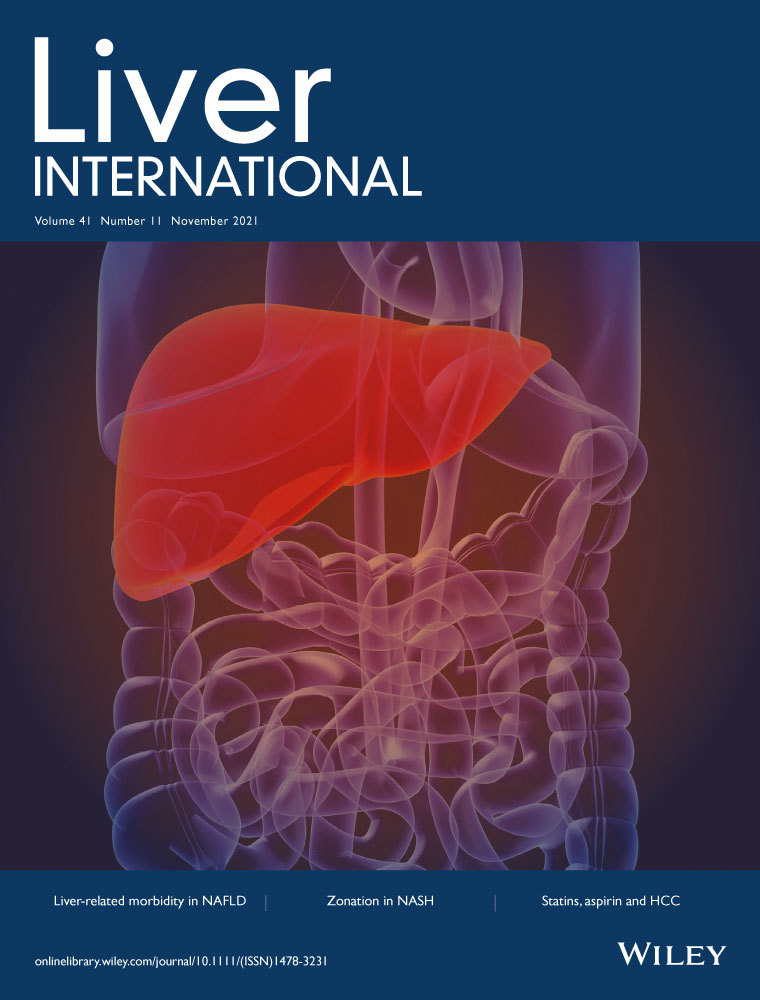Inferior cure rate in pilot study of 4-week glecaprevir/pibrentasvir treatment with or without ribavirin of chronic hepatitis C
Funding information
This clinical study was funded by a grant from the Danish Regions Medicines Research fund EMN-2017-00901 and a PhD grant from the University of Southern Denmark supported this study. Further support includes grants from the Novo Nordisk Foundation, the Danish Cancer Society and from the Weimann Foundation, neither of whom had any role in any part of this study.
Handling Editor: Benjamin Maasoumy
Abstract
Background & Aims
Shortening the treatment duration for chronic hepatitis C may increase feasibility and reduce the cost of cure. The aims of this study were to compare 4 weeks of glecaprevir/pibrentasvir (GLE/PIB) treatment with and without ribavirin for patients with chronic hepatitis C and favourable baseline characteristics and to monitor the development of resistance-associated substitutions (RAS) and re-treatment outcomes if treatment failed.
Methods
We performed an open-label single-centre randomized controlled trial, in which patients with chronic hepatitis C were randomized 1:1 to GLE/PIB ± ribavirin, stratified by genotype 3. The main inclusion criteria were treatment-naive patients, aged 18-49 with all genotypes accepted, and absence of liver fibrosis, determined by liver stiffness measurement less than 8 kPa. Viral genome sequences were determined by deep sequencing at baseline and at the time of relapse.
Results
A total of 32 patients started treatment. Sustained virological response at week 12 (SVR12) was 59% (10/17) for GLE/PIB without ribavirin and 73% (11/15) for GLE/PIB with ribavirin. Drug target-specific NS5A RAS were detected at baseline for 45% (5/11) of patients with treatment failure and for 14% (3/21) of patients who achieved SVR12. Ten failure patients were retreated 12 weeks with sofosbuvir-based regimens; all have been cured.
Conclusions
In this pilot study of 4-week treatment with GLE/PIB with and without ribavirin, we found that baseline RAS were more frequent in patients with virological failure. Development of RAS did occur after short treatment but did not result in retreatment failure with a different regimen.
EudraCT no: 2017-005179-21.
CONFLICT OF INTEREST
PBC and AØ have received research grants from AbbVie, Gilead and MSD, not related to this study and have received travel and conference support from AbbVie, Gilead and MSD. LWM, UF, MP and JB have no conflict of interest.
Open Research
DATA AVAILABILITY STATEMENT
Due to Danish rules on data availability, we are unable to make an anonymized dataset public. These rules are based on the Data Protection Act, imposed by The Danish Data Protection Agency. An English translation of the Data Protection Act can be found on the official website for The Danish Data Protection Agency (https://www.datatilsynet.dk/english/legislation/). For further information, the corresponding author can be contacted.




